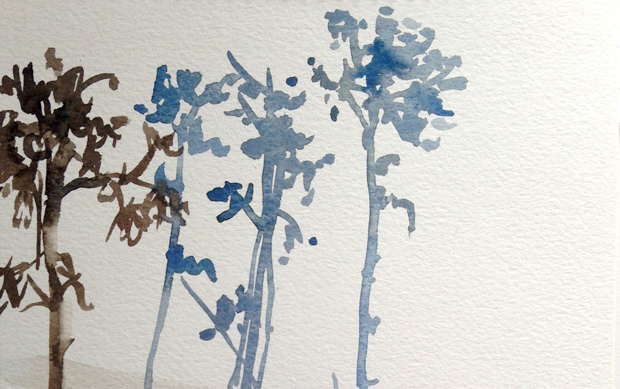
“The only thing necessary for the triumph of evil is for good men to do nothing.” ~ Edmund Burke
In the 2007 film, “What a Way to Go: Life at the End of Empire,” the narrator brings up a phenomenon of environmental books that I’ve noticed, too. They all have about ten chapters of diagnosis, chronicling what’s wrong—species extinction, rainforest decimation, mountaintop removal, toxic chemicals in mother’s milk, melting polar sea ice, on and on. Then, in the 11th chapter, there’s a prescription of what we can do to reverse it, fix everything and restore our right relationship with the living earth. “It’s not too late” is always the message. That it comes at the end of about 200 pages of gloom and doom reflects a lack of sophistication about the human psyche. If you’ve even gotten that far, you’re not going to be convinced by a single chapter of platitudes about the indomitable human spirit. No, the preceding ten chapters will have convinced you that there is no hope. We are screwed.
I am left with a similar feeling after reading Michelle Alexander’s 2010 book, The New Jim Crow. I have to admire her for using all 261 pages for the diagnosis, not claiming to have answers or a prescription. Instead, she chooses to ask powerful questions, to spark debate and exploration. This is a huge book, not only for its dense narrative and 33 pages of footnotes. It is nothing short of a reassessment of American history: full of revelations, truth telling, and looking beneath the surface of cause and effect. I wish it could be required reading of every U.S. citizen. From the first pages, I saw just how duped, blind and irresponsibly ignorant I have been about the reality of the so-called War on Drugs. Continue reading →
Like this:
Like Loading...
 What a revelation. I saw the 22-year-old Baltimorean, Kondwani Fidel, perform his spoken word last evening. This is the power and potential of Art. To speak the universal language of the heart. To show, unsparingly, what is real, and true. To alchemize almost unbearable suffering into strength.
What a revelation. I saw the 22-year-old Baltimorean, Kondwani Fidel, perform his spoken word last evening. This is the power and potential of Art. To speak the universal language of the heart. To show, unsparingly, what is real, and true. To alchemize almost unbearable suffering into strength.



